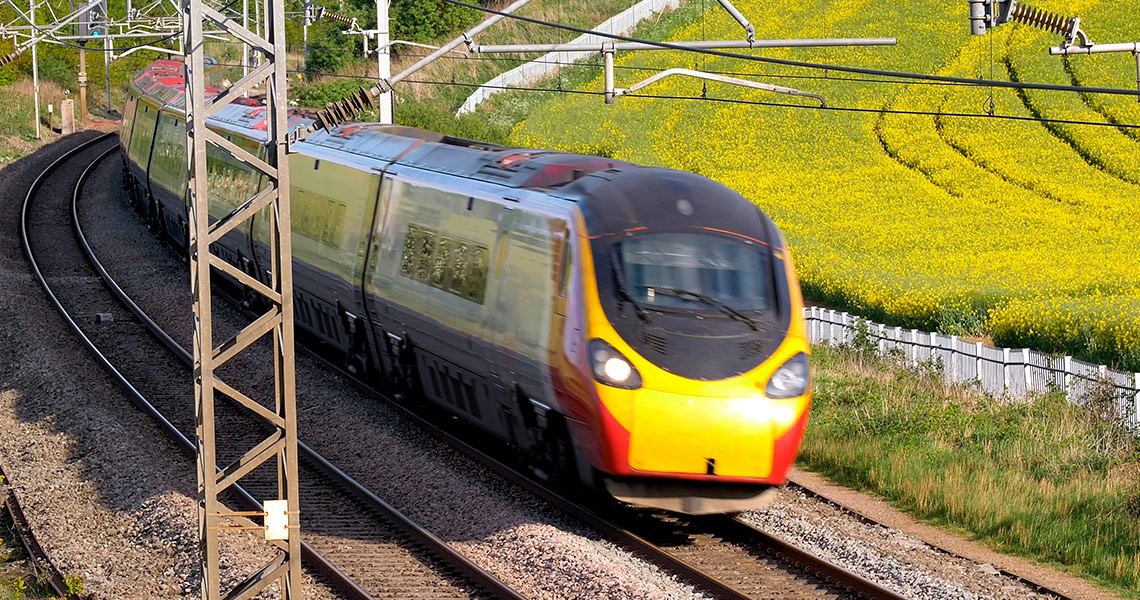Cable theft in the Railway Network is still a huge problem. Following the signalling cable thefts between Cardiff Central and Llantwit Major train services were cancelled and others delayed by up to an hour, with disruption throughout the day. One of the most high-impact and all-reaching economy disruptors is railway cable theft. It leaves commuters angry, frustrated and in the wrong place – and trains displaced which lengthens delays. January saw UK railway cable thieves in action again, costing time and money and causing chaos, this time in Wales.
But the chaos goes further than just being late for work or missing meetings. Last year, according to the latest figures, Great Britain rail delay times because of cable thefts has reached a five-year high.
A BBC investigation earlier in 2019 found there were nearly 950 hours of delays across more than 7,000 journeys in England, Wales and Scotland last year. Other figures, from British Transport Police, revealed an 85% increase in live cable thefts last year while Network Rail said thefts cost the taxpayer millions of pounds each year. But the cost the country’s businesses is considerably higher as freight – as well as human resources – fail to reach their destinations.
Britain’s rail network is designed to fail safely. If a cable is cut trains stop while the issue is located and resolved. Thieves, however, risk injury and death.
Independent UK cable innovator Tratos, part of the Tratos Group, asks why Britain is continuing to put up with these disruptions when there is a full-proof and cost-effective solution already in place which, adopted wholesale, would thwart thieves.
CEO and Chairman of Tratos, Dr Maurizio Bragagni, said: “My company brought its technical solution to the market in 2010. I believe the reason it hasn’t been taken on board wholesale is that the technology was just too far ahead of its time.
“Tratos developed a range of options to make cable theft less profitable for thieves and traceability easier for the police almost a decade ago. Its cable has the added bonus of deterring metal merchants from receiving stolen goods and, because copper either doesn’t feature or its levels are negligible, it is commercially unviable for thieves.
“We use aluminium rather than copper as a conductor. Aluminium has a lower scrap value (stealing 1000 metres of cable is about 75% less profitable than copper). Alternatively, aluminium clad steel conductors – very difficult to separate for scrap and hence very low value – can be used.”
To doubly secure cable, the company’s cable improves traceability through marking with cable owners’ ID.
Dr Bragagni added: “For even greater security we can incorporate an identity thread or strand registered to a specific manufacturer. We place the thread amongst the strands. The strand option allows for a 2mm or larger strand to be placed in smaller sized cables and make the rest up to the required resistance/conductor size with smaller wires. Even if the cable was burned or stripped down to the metal, identification is still possible.
“And we can alarm it too. Tratos can manufacture cable with a single fibre running through it which will activate an alarm when cut and even identify the location of the cut. This would help the police with response time to the location and help to make a repair also to the affected length to lessen the downtime.”
Cable theft and damage to railway cables cost UK rail infrastructure organisations £millions in compensation to train operators too.
He went on: “We have what rail operators need and encourage them to look to cable manufacturers – we have the right solution and this cable is less expensive too.
“Tratos also works closely with contractors to ensure cable drums arrive at set times to coincide with installation so it is not left lying around.”
Delays doubled from 2016-17 when 400 hours were recorded across 3,000 train journeys, according to Network Rail, and most of the trains affected were in or around London – an economic bullseye.
Global copper price rises are a compelling incentive for thieves who operate in organised gangs, stripping cable for its copper and making lucrative scrap sales.
As the cable thefts are driven by the price of the metal and the ease of harvesting it, perhaps it is time rail operators looked to technology and clever thinking to outsmart the rail cable raiders.
Tratos to supply a wide spectrum of specialised Railways Cables. Fixed trackside power cables include High voltage & Medium voltage cables supplying power to substations and switchgear, Track Feeder cable and OLE cable. Fixed trackside communication and signalling cables, including Data & Telecommunications (copper & fibre optic) as well as Signalling Power & Control Cables. Tratos are also a major supplier of Rolling Stock cables, including Inter car jumpers and Pantograph cables.










